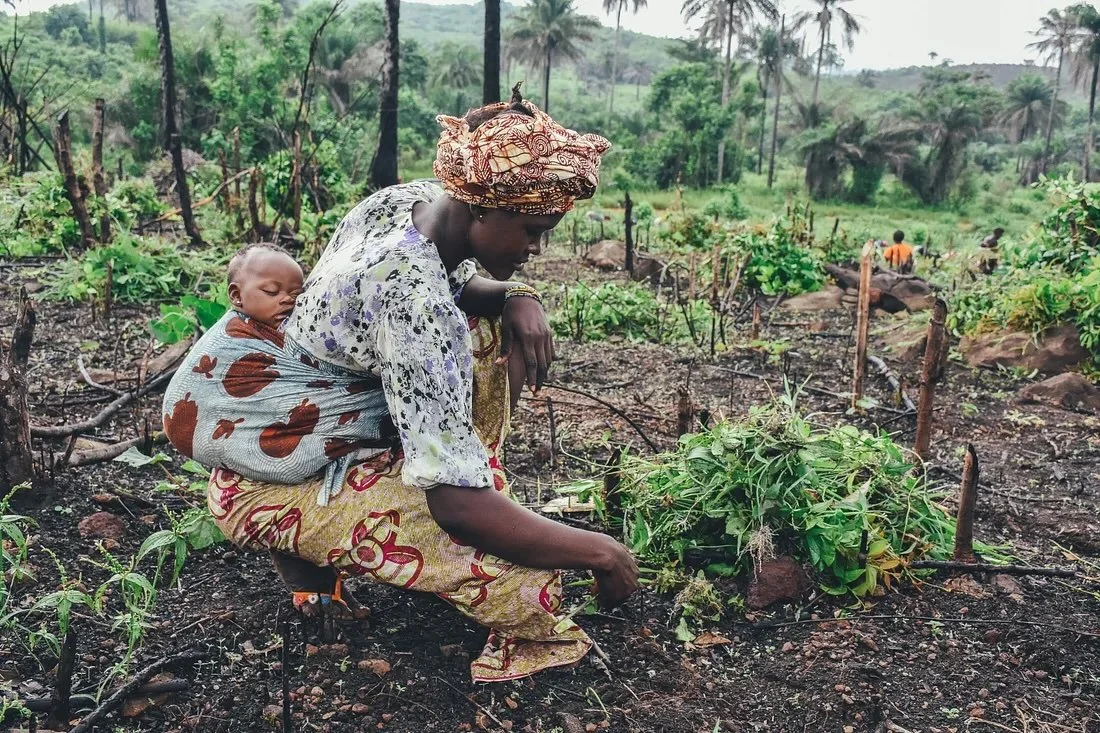The Quiz Show that’s Tackling Climate Change
By Mickey Snowden, Communications Specialist at The Collider, Asheville, NC - March 2020
The Let’s Explore Africa competition is informing audiences about Africa’s impending climate issues and how each of us can make a difference.
Although Africa is the second-largest continent in the world, it remains largely unknown to many living outside its borders. This lack of information is what inspired educator and accountant Dr. Sandra Frempong to write her book, Let’s Explore Africa: Nations, Landmarks, and Cultural Resources. Through her research process, Frempong continued to develop questions about the continent and realized that creating an interactive quiz show could be the ideal way to engage learners.
The first competition was sponsored by Asheville-Buncombe Technical Community College in Asheville, North Carolina, and the very first Let’s Explore Africa championship was sponsored by and held at Duke University in Durham. The Let’s Explore Africa competition has since spread to cities throughout the US, where students and adults of all backgrounds participate. The Collider, a climate innovation business center, has the pleasure of hosting the show at its downtown location where members and staff often participate.
Collider staff (Mickey Snowdon, left, and Miles Kish, right) and members (Jeremy Schewe of Ecobot, middle) participate in a Let’s Explore Africa competition at The Collider in December 2019. Photo courtesy Let’s Explore Africa.
When coronavirus has subsided, countries across the world will be scrambling to resurrect their economies, and they will be looking at the US as an example. If we return to “business as usual” — or worse, unrestricted economic growth at all costs — it will not only undo years of environmental policy but set a precedent for the rest of the globe.
Climate Entrepreneurs
Climate entrepreneurs need to find creative ways to stimulate the economy without contributing heavily to greenhouse gas emissions, undoubtedly an arduous task. But it is climate professionals who are most poised to provide solutions that will not only support the economy but advance progress on the climate crisis. Development of widespread clean energy projects could help us flatten our greenhouse gas emissions curve (which, by the way, doesn’t look so good even with the COVID-19 drop), and new software and technologies could provide users with the tools necessary to reduce our environmental impact and build climate resilience.
The African organization, Madiba & Nature, builds “Ecoboats” from reclaimed plastic bottles. These boats are lighter and significantly less expensive than the wooden canoes traditionally used by fishermen in Cameroon. Photo courtesy World Economic Forum Live.
What sorts of things can contestants expect to learn about Africa? Here’s a sampling:
It wouldn’t truly be a quiz on Africa if contestants weren’t asked about some basic African geography including names and locations of various countries and their capitals, plus natural features like rivers, lakes, and mountains.
Africa has more religions than scholars can keep track of, many of which fall under animism — the belief that all objects, even inanimate ones like stones, are living. Many African societies are also polytheistic, meaning they worship multiple gods. Let’s Explore Africa doesn’t delve deeply into African religions, but it’s worthwhile for contestants to brush up on which ones dominate which countries.
Understanding Africa’s natural resources are key to understanding the continent’s current and historical political atmosphere. Africa has an abundance of oil and gas, uranium, diamonds, tea, coffee, rare earth minerals, phosphates, and other resources. These resources are highly sought after, and as a result, inter-tribal conflict is common, as is environmental and economic instability.
Africa houses over 65 percent of the world’s arable land and more than 10 percent of its internal fresh water.
It’s difficult to discuss Africa’s politics and natural resources without mentioning the threat that climate change poses to the continent. According to the UN Environment Programme (UNEP), Africa will be affected by climate change more severely than anywhere else in the world, despite the fact that it contributes the least greenhouse gas emissions of any of the world’s continents. In fact, Africans are already feeling the impacts of extreme heat, drought, flooding, landslides, and desertification.
Climate change is predicted to negatively impact crop yields and water security in the coming decades, problems that will affect the majority of Africans. According to the non-partisan research group, Afrobarometer, residents cite drought as the most significant weather pattern threatening agriculture on the continent.
A mother tends her plants in Sierra Leone. Photo courtesy Annie Spratt on Unsplash.
Decreased rainfall could affect African rainforests in unprecedented ways. Since these forests are literally the “lungs” of our planet in terms of carbon sequestration and oxygen production, any impacts on forest health will likely be dire.
Energy and agriculture demands are already straining the continent’s water sources, and population and economic development will exacerbate these needs. Unfortunately, climate change is expected to negatively affect water supplies through evaporative losses.
It is this urgency that has motivated Frempong to begin incorporating climate-specific questions into the show’s format in order to engage people of all ages and backgrounds on this universal issue. She says that being able to identify the threats climate change poses to Africa will give people a starting point for thinking of ways to mitigate their climate footprint and help the continent build resilience.
Let’s Explore Africa is currently held on the last Friday of every month (except for November and December) at The Collider in downtown Asheville beginning at 5 PM. Follow the link below to learn more and register for the next competition.




